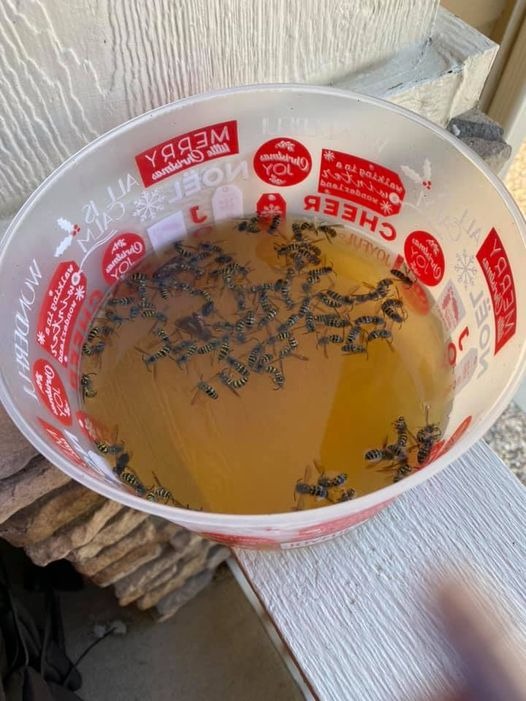ADVERTISEMENT
#### Instructions:
1. Cut the top off a plastic bottle (just below the neck) to create a funnel shape.
2. In the bottom of the bottle, add a mixture of **sugar water** or **fruit juice** to attract the wasps.
3. Invert the top part of the bottle (funnel side down) into the bottom half, creating a trap.
4. Place the trap in areas where you’ve noticed wasp activity, such as near a garden or trash can.
Wasps will be attracted to the sugary liquid and get trapped inside the bottle. Check the trap daily and empty it out as needed.
### 6. **Opt for Natural Wasp-Repelling Plants**
Certain plants naturally repel wasps, and having them in your garden or yard can help discourage wasp activity. Some of the most effective plants include:
– **Mint**: Wasps dislike the strong smell of mint, so planting mint around your garden or near your porch can help keep them away.
– **Wormwood**: Known for its strong, aromatic scent, wormwood is a great plant to deter wasps.
– **Citronella**: The scent of citronella repels not just mosquitoes but also wasps.
– **Eucalyptus**: In addition to essential oils, planting eucalyptus trees or bushes in your yard can help deter wasps.
### 7. **Consider Professional Help**
If you have a large wasp nest or are dealing with an infestation that’s difficult to handle on your own, it may be time to call in a pest control professional. They can safely remove nests and provide advice on how to prevent wasps from returning in the future.
### Conclusion
Wasps can be a nuisance, but with a little proactive effort, you can keep them away from your home and garden. Whether you use essential oils, create a decoy nest, or make your own wasp trap, there are plenty of simple and effective ways to deter these pests. By minimizing food sources, sealing potential nesting sites, and introducing natural repellents, you can enjoy your outdoor spaces without the worry of wasp stings.
Remember, safety comes first—if you have a significant infestation or are allergic to wasp stings, it’s best to consult a professional pest control service to handle the problem.
ADVERTISEMENT
